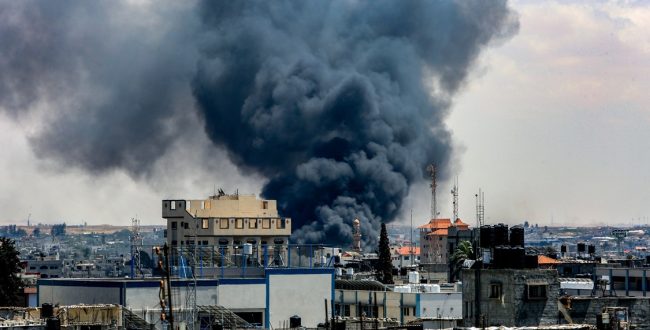Two incidents reported only in the past few weeks bring this issue into sharp relief.
This month, news leaked to the press of an academic battle on the campus of the University of California, Los Angeles. The incident pitted Dr. David Shorter, an associate professor of World Arts and Culture and his supporters, against the Amcha Initiative , a coalition of California-based pro-Israel faculty activists at other state institutions. According to the AMCHA complaint lodged with the UCLA academic senate, Shorter had utilized a portion of his course website for a class on “Tribal Worldviews” to post links to pro-BDS websites. Under pressure, the senate chair unofficially censured Shorter and his department “counseled him” that “the posting of such materials is inappropriate.”
While AMCHA leader and UC Santa Cruz lecturer Tammi Rossman-Benjamin praised this action, as “there are professors who misuse and abuse university positions and use academic freedom to promote their political agendas directed against Israel,” a group calling itself California Scholars for Academic Freedom (CS4AF), has rushed to Shorter’s defense in their own letter to the academic senate chair.
Charging that Shorter’s civil liberties have been violated by “a well-known partisan duo who have been harassing California faculty for some time (AMCHA),” they railed that, “we have here…not only a probable violation of academic freedom, but also of due process…that this string of events was provoked by a biased political group that has been attempting to silence anyone speaking about Palestinian issues only further makes a mockery of the faculty protocol at UCLA.” It is unclear where the matter stands today.
It is perhaps unsurprising that Shorter was a signatory to a letter of protest over an advertisement in The New York Times placed by David Horowitz’s Freedom Center (an organization billing itself as “dedicated to the defense of free societies whose moral, cultural, and economic foundations are under attack by leftist and Islamist enemies at home and abroad”) following a lecture at the University of Pennsylvania. The advertisement implicitly compares the BDS movement to the Nazi regime and claims it “calls for a new Holocaust,” and makes “ancient blood libels become modern day massacres,” including “contributing to an atmosphere of hate” that “spawned” the murders at a Jewish school in Toulousse, France.
In particular, Horowitz points fingers at several activist professors (including former Weatherman Bill Ayers, Kent State Professor Julio Pino [who I have written about previously], and Columbia University’s Joseph Massad) who he suggests should be “publically shamed and condemned for the crimes their hatred incites.” A counter-advertisement undersigned by 151 professors condemned Horowitz, who they allege “shut down informed debate” through his own use of “the language of hatred and bigotry.” The war of words seemingly continues between the two parties.
On a personal note, as an academic who considers herself a Zionist but is aware of the both the nuances and flaws of Israeli society today, I myself have been caught between these two polarizing currents. Without significant effort and commitment by all parties to bridge the gap between these two extreme positions, centrist voices will be lost. I fear that myself and other moderates will soon go the way of the dodo — our extinction may soon be the latest casualty of the Arab-Israeli conflict.
















